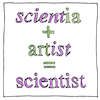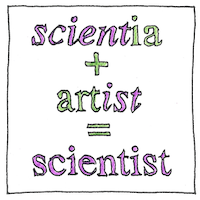William Whewell
philosophy of science

|
‘Scientist’
At this time, science was mainly a private pursuit; funding for scientific work was not public; the goal of science was not the public good; most men of science were generalists; science and the arts were not at odds; there was no commonly accepted scientific method; and English didn’t have a word for practitioners of science. During the third annual meeting of the British Association for the Advancement of Science, Samuel Coleridge said that the members of the association should not called “natural philosophers” because they were not philosophers. William Whewell suggested, by analogy with “artist,” “economist,” and “atheist,” that they use the word “scientist.”
Coinages
In addition to “scientist,” Whewell coined the terms “physicist,” “consilience” (the agreement between different studies), “catastrophism” (the theory that geological changes don’t happen gradually), and “uniformitarianism” (the opposite of catastrophism). For Michael Faraday, Whewell suggested the terms “electrolysis,” “ion,” “dielectric,” “diamagnetism,” “anode,” and “cathode.”
‘Poetist’
Karel Teige decided in 1924 that we needed a new art to provide relief from the sterile logic of the modern world. This new art would be the art of being alive and living well, an irrational freedom of love, abundance, and happiness. * Another goal would be to embue the modern world with all the meaning it can hold, and then some. Modern poetry should shine a light on industry and science and show its meaningful forms, its many shades and colors.



The third annual meeting of the British Association for the Advancement of Science was on 24 June 1833. Many rejected the term “scientist” because they didn’t want to be associated with atheism or economics. It took decades for this new term to be widely accepted.
In his books on the history and philosophy of the inductive sciences, Whewell observed that Francis Bacon’s anticipated art of science had not developed because science depended on “invention, sagacity,” and “genius.”
See also in The book of science:
Readings in wikipedia:
Other readings: